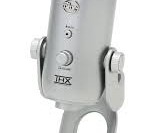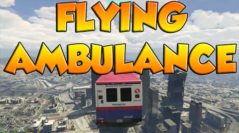Twelve years ago I walked out of my state KED station declaring to everyone who would listen that “I hope I never have to do that again.” I passed my state practicals the first time around which really was the bigger piece that worried me. The written would come as I was a pretty good test taker but the hands on stuff needed to be done correctly on the first pass. There was no passing by a skill and coming back to it if I was not sure about it. In August I plan on heading up to New Hampshire and taking my practical station for National Registry and I have to revisit all of this again. My practical day for both my EMT and paramedic exams were pretty anxiety filled. I wanted to get it done and never look back and that is really what I did. Now I have twelve years of bad habits to put aside for one day of testing. Still though, even after all these years my paramedic instrutor Gary Childs, or GAC as he was known back then, standing over me reminding me to “rip the tape” on my IV station or stressing the importance of that first rhythm interperatation on a quick look. I was well educated in paramedic school and for that I am extremely greatful. Paramedic school was extremely fun but challenging all at the same time. I had a great group of classmates and we were close. Some of us were college students who had entered a small four year program together while others were from fire departments, private services, and the community. Regardless of our background we all bonded quickly and even today when I see any of them it is always nice to catch up on the old times and figure out where everyone is today. Having them around helped surpress a lot of that anxiety that I had. I always knew that if I had a problem that an insturctor did not point out to me one of them would share it with me. When it came time for state testing though I was on my own. I had no partner...
The Podcast

We took the week off last weeks or Labor Day and this week the podcast is back with a short interview that I did on Jamie Davis’ The Medicast where we talk about the show and what it is all about. Regular shows will be back next week! Enjoy! To download the show in MP3 format, follow this link! Otherwise check the show out below: ...
Read MoreFor Leadership

Roughly twelve years ago, AMR and AEV’s Safety Concept Vehicle made its way to Springfield for us to take a look at. It included a number of interesting features like an expanded harness setup to allow providers to move a little more freely around the box while still being anchored. There were mounting brackets for cardiac monitors, and video cameras to monitor both the rear of the truck for backing up, and the passenger side to check for traffic before opening the curbside door. The vehicle itself contained a lot of positives that have been adopted over the years. I see more cameras used in emergency vehicles and I’m a a fan of the checkered or striped patterns on the backs of trucks to make them more visible to oncoming traffic. I have also seen a few more monitor brackets. But where is everything else? When is that ambulance of the future going to get here? Year after year at conference after conference, there will undoubtedly be some ambulance parked on the exhibit hall floor touting itself as the “ambulance of...
Read MoreFor the Field

There has been a lot of buzz over the past week about California’s EMS Bill of Rights. Dave Konig has a great take on it over at The Social Medic that I encourage you to read. American Medical Response has even launched a counter campaign to it complete with the hashtag #LivesBeforeLunch. While that makes me cringe a bit, I want to touch on one line of AMR’s response to the bill that stuck with me. “As written, AB 263 is an unprecedented political power grab, and will heavily penalize private – but not public – employers of EMTs and paramedics.” When I look back at my career with AMR that spanned more than twelve years, I had a lot of ups and downs. Had busy shifts and I had slow shifts. I found myself mandated to work despite being sick, or just needing a day off. Through the highlights and the lowlights of working in a busy 9-1-1 system that amassed roughly 40,000 calls per year, the instances where my 12 hour shifts hit double digits were rare when compared...
Read MoreLessons to Learn

Any time I peruse the pages of EMS related articles I will inevitably come across some service that is trying to take over another service’s area. Diving deeper into those articles usually reveals the same usual arguments. Imagine my surprise when I clicked on an article about the East Longmeadow Fire Department’s move to take over EMS response in the town of East Longmeadow. I should first point out that what I am about to write is meant to represent my own personal views on the state of the industry. I have not inquired about anything having to do with the current staffing of ambulances and volume. What I am reflecting on is the article and just the article coupled with my years of experience in the greater Springfield area. Just to give a little bit of background here, I used to have a dog in this fight. As many of you know, I was a 12-year employee of American Medical Response, the last seven of which as a supervisor. I participated in contract bids for the town, and saw service...
Read MoreRecent Posts
Study, Study, Study!
I have a confession to make. I have not taken a test in 11 years that was not based on material that I was taught in the few days prior. That is to say, since college, if it was not ACLS, PHTLS, or some other EMS related course, I have not tested on it. It has also been 12 years since I took a standardized paramedic certification test. Now, I am on the verge of facing the National Registry paramedic test head on. Every piece of information that I obtained in 1999 and 2000 will be called out, along with anything else that I might have learned along the way. No pressure, right? The biggest change that I have seen over the years is the way that we are able to study is completely different. Back then, having information “at my finger tips” involved me adjurning to my book shelf or hoping that the correct material was hiding in my bag somewhere. Now with the inventions of Google, the enhancement and growth of the internet answers are even easier to come by, as they should be. I am struggling though to figure out if that will make it easier for me to study or harder. I feel like I am a prety computer savvy individual with a good grasp on what is out there in cyber space but in embracing that I am also putting aside much of what I previously knew. For my entire academic career, when I had to I buried my nose in a book. I was not very good at studying mainly because I did not do it. My grades in high school were good, not great but good. They were that way because as I look back now, I was bored. I did not study very often and somehow still did well on tests but my grades were brought down becuase I was one of those lazy kids that did not see the value of homework. When I got to college that hurt me in some of my classes because my study skills were not as good as some of my peers. It was not until I got into...
Where has SBK Been?
Yes, I know, it has been a while. I feel like an absentee landlord failing to plug a leak in the blogosphere but here I am, back for a quick update. To put it lightly, June was a stressful month for a number of reasons both professional and personal. As time has gone on, I have pushed through, mainly with a focus on studying for my national and getting that Disco Patch on my shoulder. Because of this my time to spend updating you all on my progress and sharing my thoughts on what is going on in the world of EMS has suffered. Rest assured though that I am still here. With each day that I spend studying and with each practice test that I take I am feeling more and more confident with the information I have refreshed on and retained. Still though, I am still dealing with a considerable amount of test anxiety. Want to read about what I am going through? Check out my Wednesday and Friday posts. They will give you a better idea! Rest assured, as my Quest continues, I will keep you all updated. Failure is not an option. Stay safe out...
Stay Alert
Last week the area that I work in suffered a horrific tragedy: we had a line of duty death of one of our city’s police officers. The impact of this has been far reaching and very difficult on many of us. One of the questions that I have heard over the last couple of days has been about scene safety. The “what if” scenarios are being played out left and right. “What if we were there?” “What if it was for a medical call and not a domestic?” While I too have asked myself these questions, the thing that I keep reminding myself and that I think we all need to remind ourselves is scene safety is not an absolute. I am not going to talk about specifics of this call however I feel that this is an important topic to reinforce. Kyle David Bates of First Few Moments and Pedi-U fame teaches a class called “Scene Safety Stinks” and I could not agree more with him. The words “scene safety” and the declaration that the “scene is safe” might give us a piece of mind, but all it truly represents is a false sense of security that we all hold near and dear to our hearts. We should not “practice scene safety” or even worry about. What needs to be important is “scene awareness.” Every scene that we are on evolves and changes moment by moment. Something as simple as the introduction of another family member or a patient uttering the word “ow” in the presence of the family dog could change things in a second, and the number of police officers, fire fighters, or national guard that you have there with you will not be able to prevent whatever happens next. When responding to any scene, keep the following in mind: 1. Always have a way to call for help – Cell phones are great, but I’d rather have a radio. No dialing required, no identifying yourself or asking for anything. All any of us should need to do is announce our unit number and declare that we need help. My radio now lives on my hip all the time so I...
The Portable Paramedic
In preparation for my quest for the disco patch, I started looking at reciprocity requirements throughout the country and I came to one conclusion: being a paramedic and trying to move is very frustrating. For the life of me though I cannot figure out why this is. When I went through paramedic school so many years ago, we had a mix of people in my class: there were two of us from New Jersey, many from Massachusetts, one of New Hampshire, and a few from Connecticut. We went through our Massachusetts approved paramedic class, but not all of us tested in Massachusetts. A few of my classmates decided to go directly down to Connecticut and test there, as they had no intention of working in an EMS system in the great Commonwealth. Here is how it went: the classmate that I sat right next to who got the same training as I did, took the same tests, did the same amount of field and clinical time drove across a boarder that was less than twenty miles to the south a took a test that was not identical to mine but similar. Both of us passed. She worked for a service south of that boarder, and I worked for one to the north of it. Despite the fact that our training was identical, in order for us to work in each other’s states we each would have more hoops to jump through to again prove our worth as a paramedic. Now, expand that out to a more national scale. Some states accept certifications from other states as being just as good as certs from their own. Others only accept National Registry. Still others feel that National Registry is not even good enough and they require you to come in and take their state’s test. Still another state on the west coast requires National Registry, a state certification, and then clearance within the specific county you choose to work in if you want to care for their sick and injured. Then there are Oregon and Texas. Add on to that a minimum of an Associate’s Degree. While I feel that these two states are right on...



Recent Comments